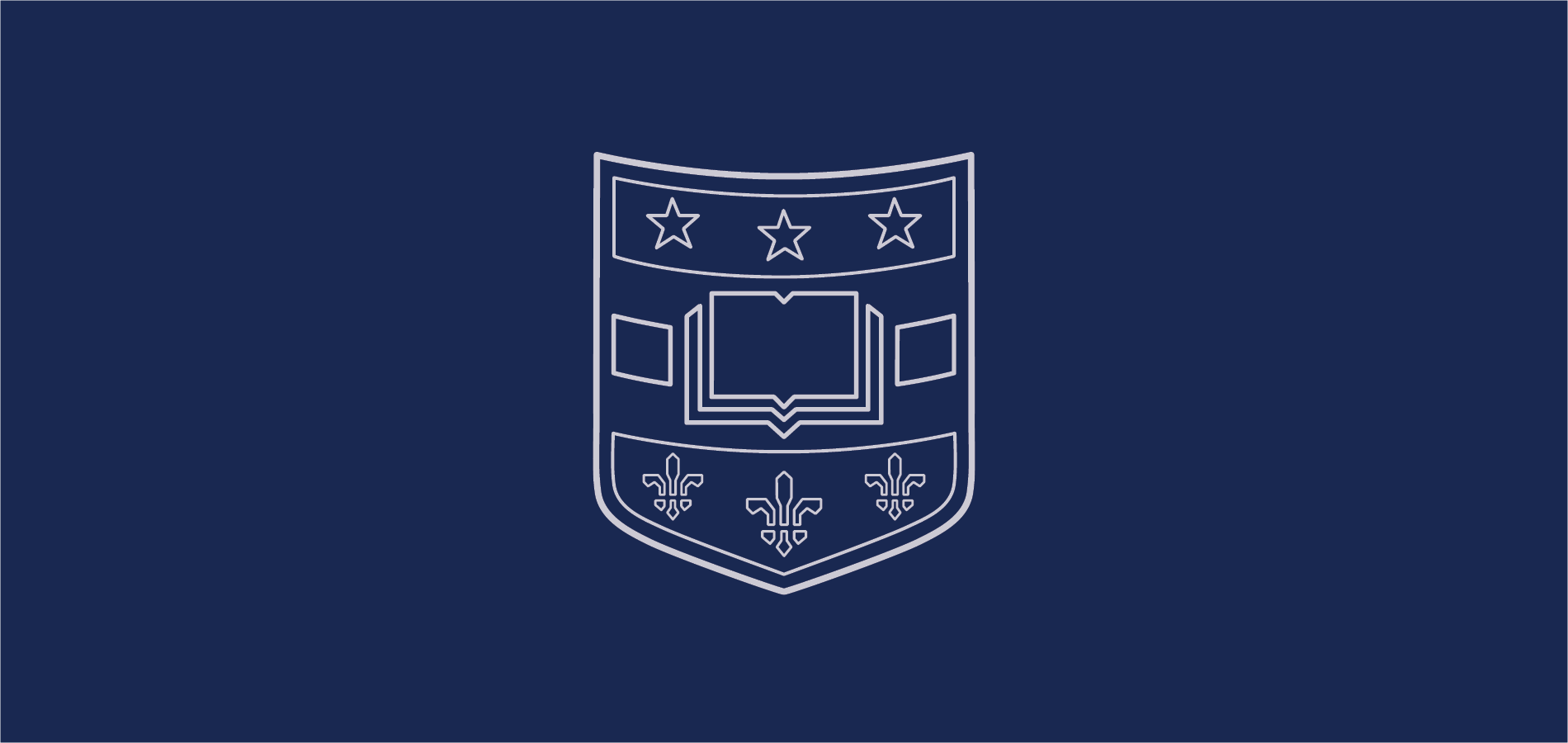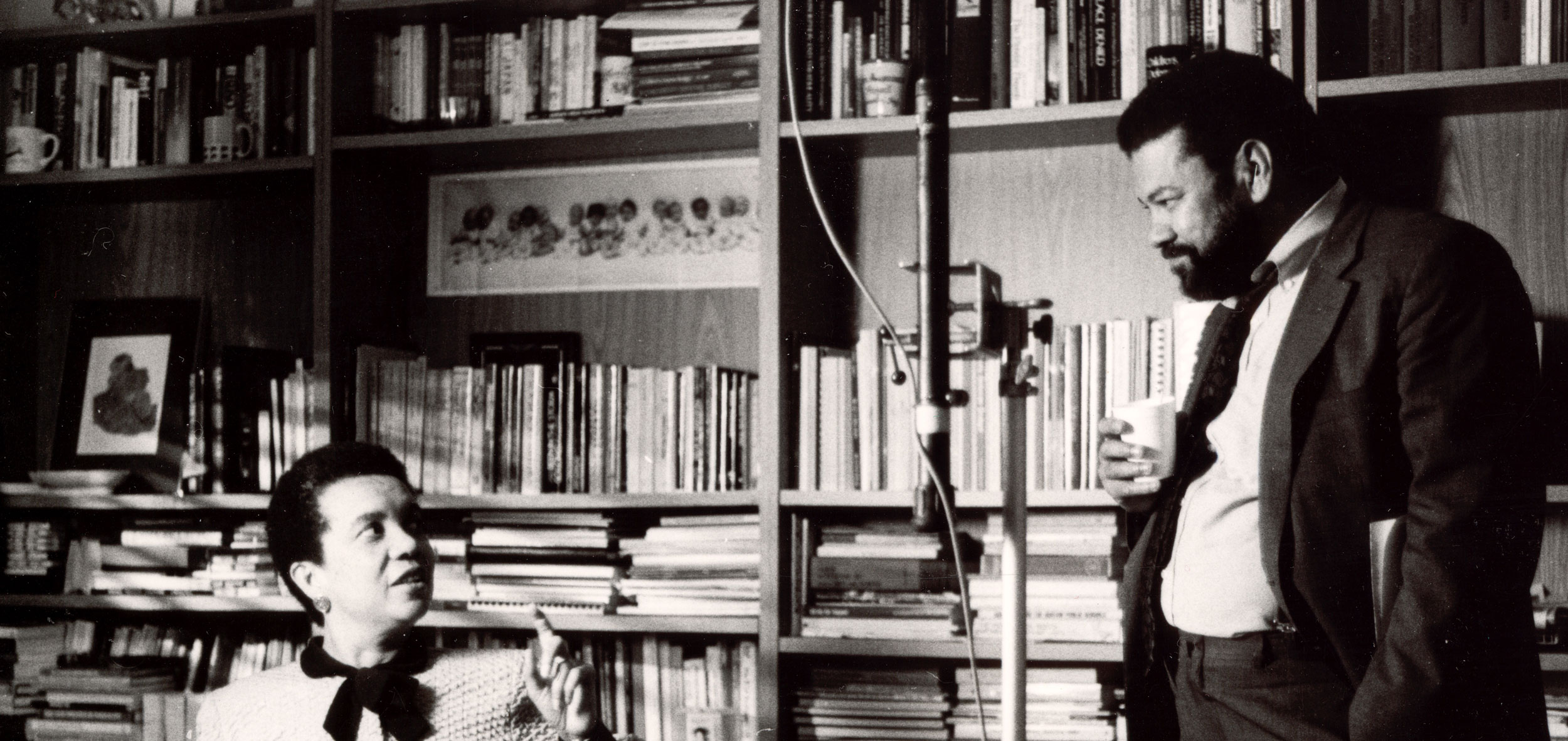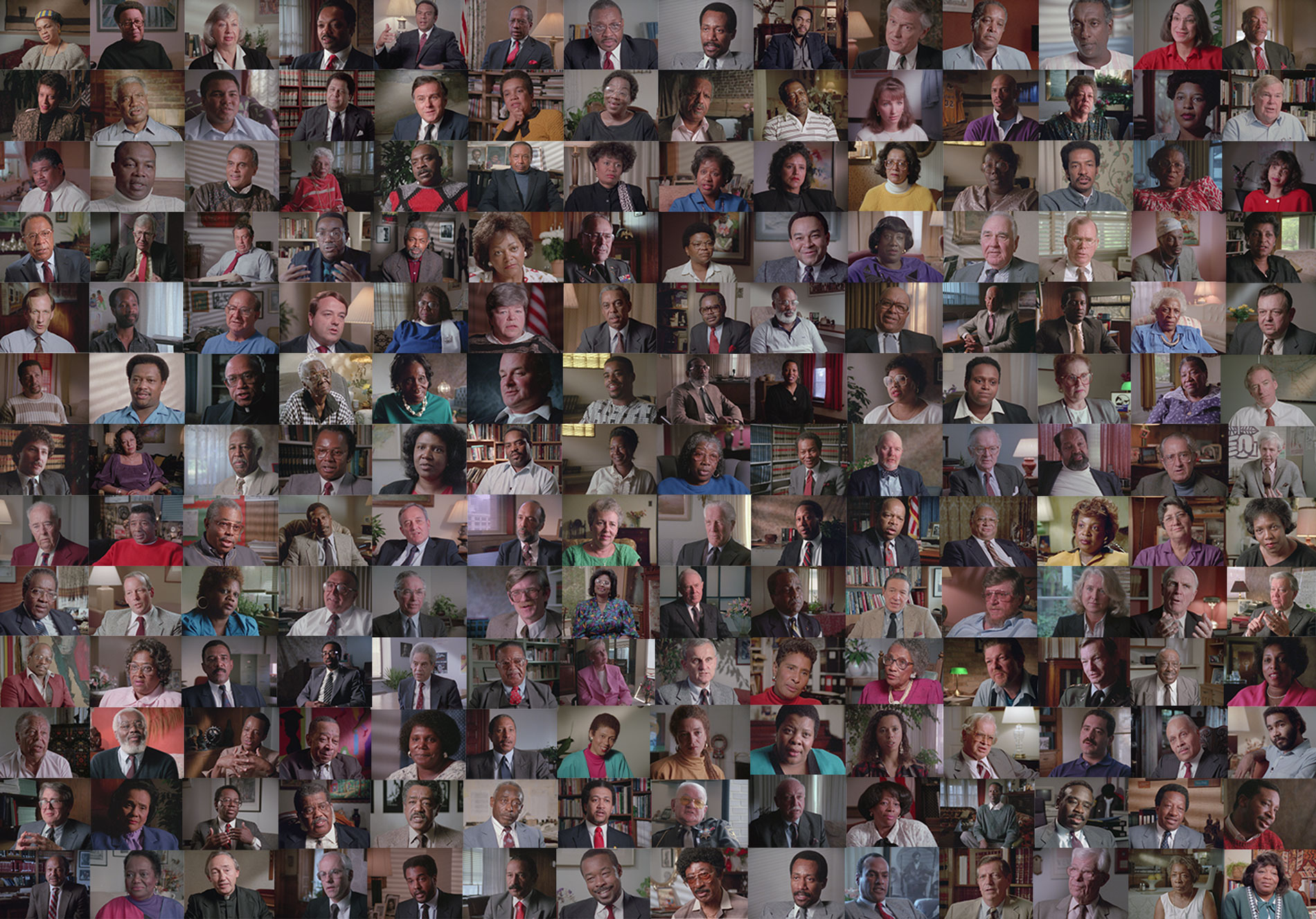
Interviews from Eyes on the Prize II Now Digitized
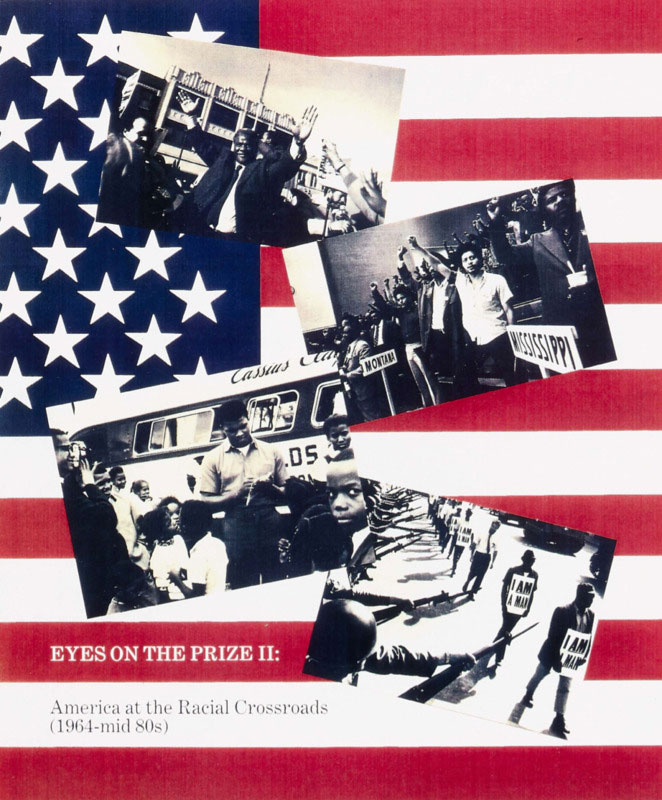
The Washington University Libraries are excited to announce that it has completed a three-year grant to digitize, reassemble, and share online the 183 interviews created for Eyes on the Prize: America at the Racial Crossroads, 1965-1985. View the full-length interviews with transcripts.
The Washington University Libraries also created an online exhibit about the production history and research value of this collection called More Than Talking Heads.
St. Louis native Henry Hampton’s Blackside Inc. made Eyes on the Prize: America at the Racial Crossroads (or as they called it during production, Eyes II) as the follow-up to the groundbreaking civil rights program Eyes on the Prize: The Civil Rights Years, 1954-1965. Eyes II was broadcast in 1990, three years after its predecessor.
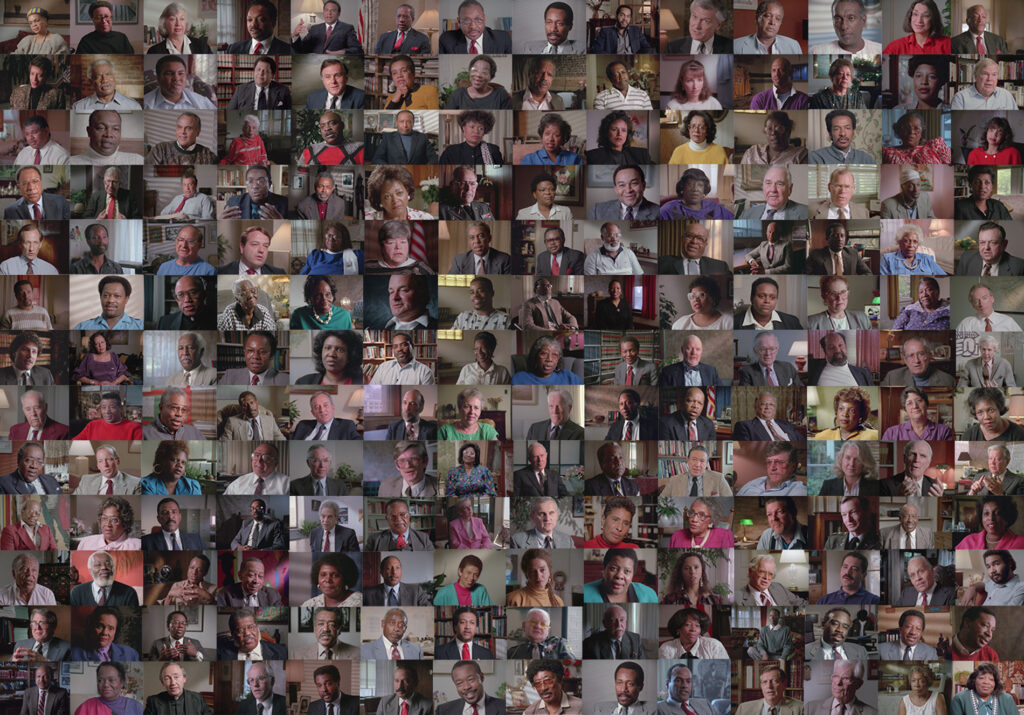
This second series picks up where the first left off in the story of African Americans’ struggle for the basic civil and human rights due to all citizens. After the March on Selma and the Voting Rights Act of 1965, the Civil Rights Movement entered a new phase. The pace of integration slowed down as activists turned their attention to the inequality in northern cities. As relevant today as when it was first aired in 1990, Eyes II explains major events that continue to shape the current state of racial equality in America: the assassination of Malcolm X, Dr. King’s antiwar stance, Detroit 1967, the rise of the Black Panther Party, Attica, the 1972 National Black Political Convention, the white riots in Boston over school desegregation, the growth of Black pride, and the elections of African American political leaders like Carl Stokes and Harold Washington.
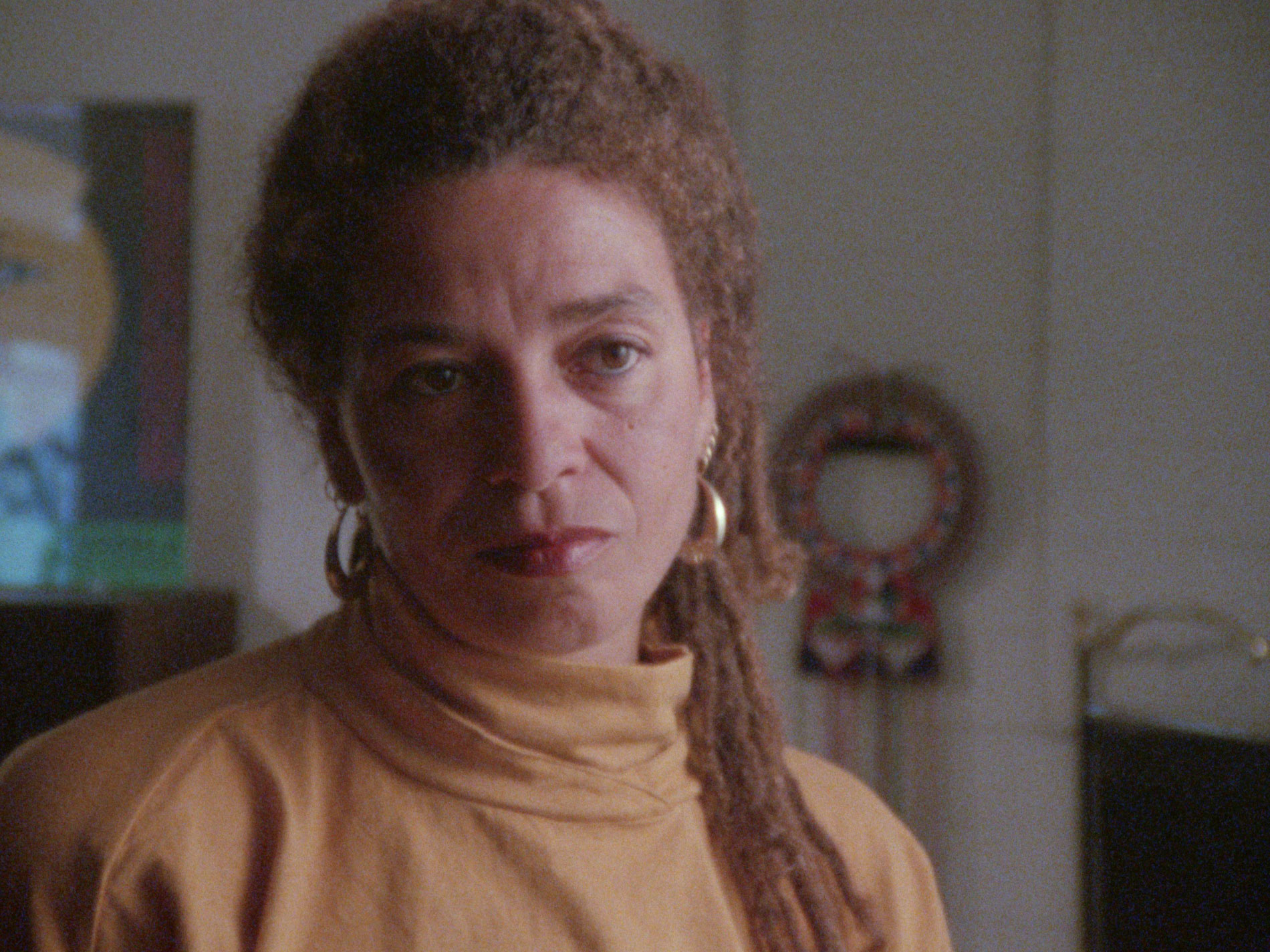
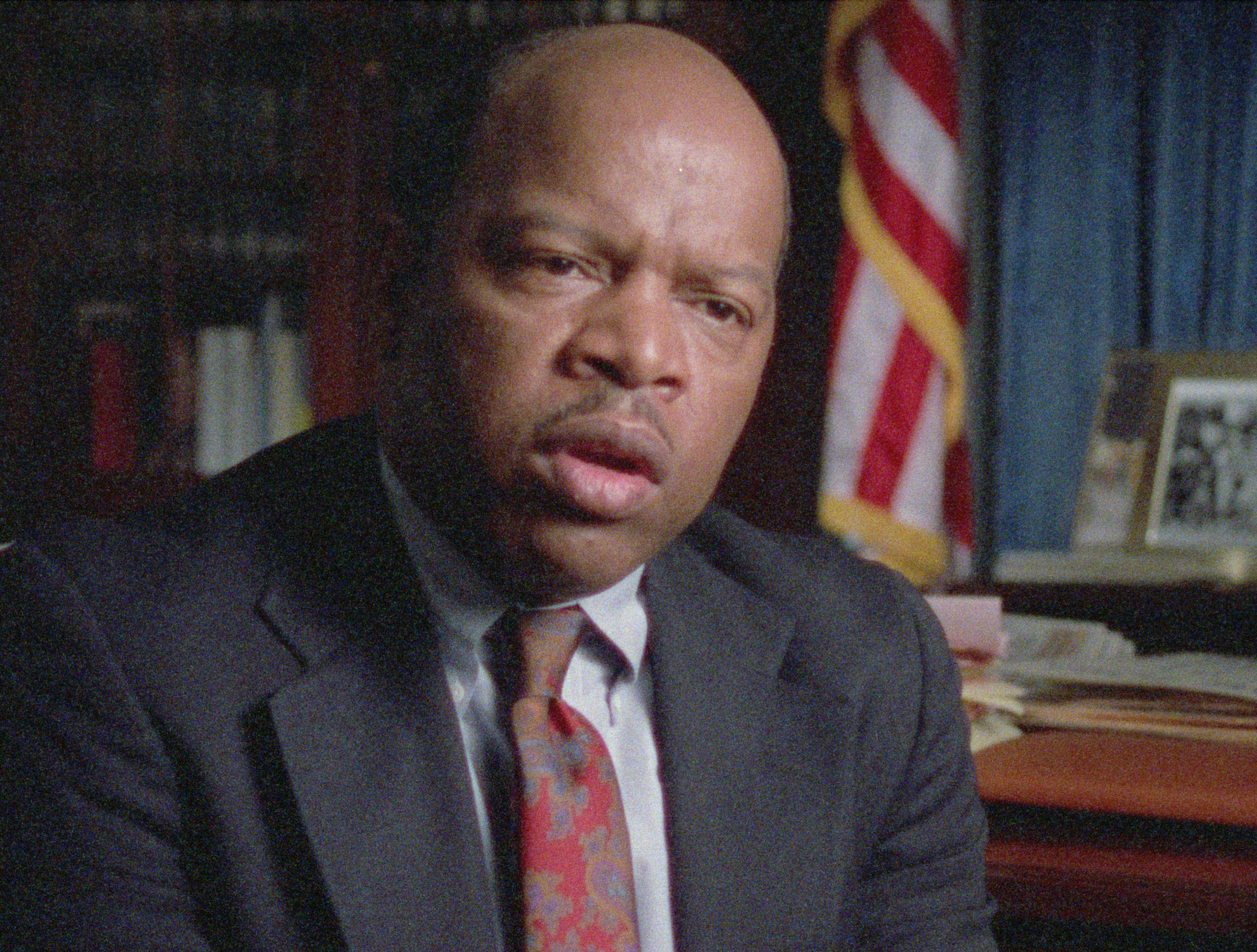
Blackside producers interviewed many of the major leaders in the civil rights and Black Power movements such as Angela Davis, Coretta Scott King, John Lewis, and Bobby Seale. But equally as important are the interviews with everyday folks and local activists. For Henry Hampton and the other Blackside producers, these people were the unsung heroes of the struggle for racial justice. These interviewees include Akua Njeri, a member of the Chicago Black Panther Party and partner of Fred Hampton; Athalie Range, who protested against police violence in Miami after law enforcement murdered Arthur McDuffie; Robert Lucas, who in 1966 led a march in Cicero, Illinois for equal housing; and Tracy Amalfitano, a white parent in Boston who supported the city’s school desegregation programs.
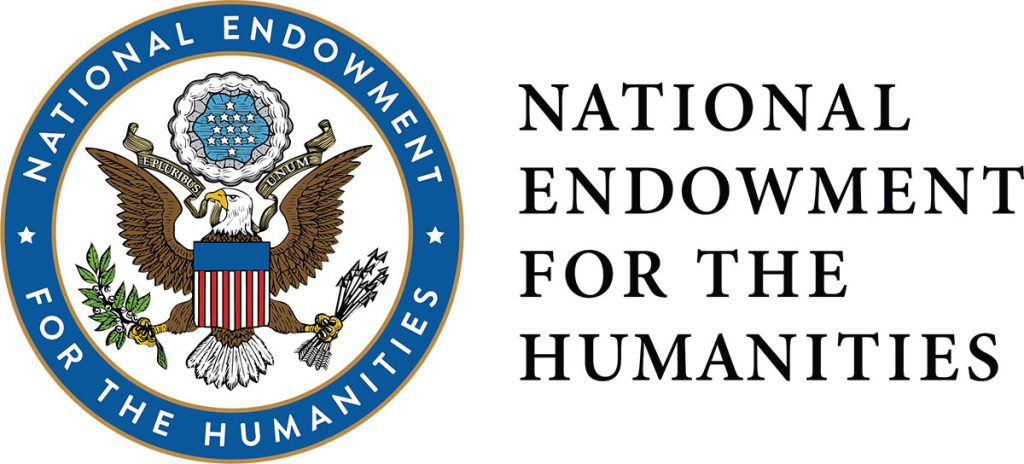
This preservation project was funded thanks to the support of the National Endowment for the Humanities. The NEH awarded the Washington University Libraries a Humanities Collections and Reference Resource grant for $226,392 in the spring of 2019.
The Libraries worked with media digitization lab Preserve South, which created 2K digital scans of the original film negatives and transferred the quarter-inch audio of the full interviews. Our recently retired Film and Media Digital Archivist Jim Hone expertly combined the raw video and audio files into the finished cleaned-up versions available online. This was no small task. The 183 interviews are spread across 242 reels of 16mm negative and 281 audio reels. Added up, they total almost 102 hours in duration and 68 terabytes in size.
In addition to Jim Hone, numerous library staff worked to preserve this important collection and share it online including project director Joy Novak, Film Preservationist Tyler Bequette, Audiovisual Cataloging Archivist Irene Taylor, Processing Assistant Barry Kelley, and Curator of Film & Media Andy Uhrich.
With the NEH funds, the Washington University Libraries was also able to digitize 89 audio cassettes that record production meetings and other promotional events for the series, 60 video cassettes of different edits of the episodes, and over 19,000 productions documents, which is only about ten percent of the total papers in the Eyes II collection. These items are not up online but they can be accessed for teaching and research purposes.
This project was based on a previous grant-funded effort to digitize and reassemble the interviews from the first series of Eyes on the Prize. That work was completed in 2016 thanks to support from the National Historical Publications and Records Commission and the Andrew W. Mellon Foundation. Those interviews with transcripts can be accessed online through Washington University’s online Repository.
The NEH support also funded the work of Washington University Film and Media Studies graduate student Noel Fortman to work with Uhrich on the research and writing of the exhibition More Than Talking Heads. This online exhibit provides a background on the making of Eyes II, uses production papers to explain how the interviews were conducted, and categorizes the interviews by topic and episode they appear in. The exhibit is intended as a resource for teachers interested in using these interviews in their classes, documentarians searching for rare footage, and the general public wanting to understand what happened to the Civil Rights Movement after its successes in the 1950s and early 1960s.
We are still at the racial crossroads here in America. But as Blackside wanted this second series of Eyes on the Prize to teach us, and as these interviewees believed, we get to decide which direction the country goes.
For more information on this preservation project in specific or the Henry Hampton and Blackside, Inc. collection in general, please contact Andy Uhrich, Curator of Film and Media, at jauhrich@wustl.edu.

